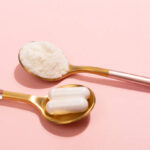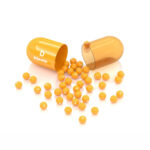If you have joint pain, you are not alone in it. According to the 30-day National Health Interview survey, 30% of adult’s experience pain, aches and stiffness in or around the joints. The Centers for Disease Control and Prevention estimates that 54.4 million Adult Americans — about 15 percent of the population — suffer from arthritis or areas around it.
Joints are the point of connection between bones, providing support in movement and facilitating them in general. The human body has 360 hinges, most of which are mobile. When these joints are intact, the bones inside them move smoothly between them because their surfaces are covered with a soft layer of cartilage and membranes that secrete a viscous fluid called synovial fluid.
Both dysfunction and pain occur when the synovial fluid is not excreted properly, or when the cartilage covering the bone deteriorates. Joints can be damaged suddenly or gradually, and may be caused by a disease or injury. Pain and ulceration can be severe or chronic, ranging from mild to severe.
Osteoarthritis, which means deterioration of cartilage that covers the ends of the bones (especially in the knees and hips) usually occurs as a natural part of aging, which is the most common cause of joint pain.
While the first way people can resist the pain caused by joint pain may be pain medications (e.g. ibuprofen, acetaminophen, and aspirin), these medications have very bad side effects, such as causing kidney damage. Fortunately, there are many natural ways to reduce inflammation and relieve discomfort from joint pain.
Movement is necessary.
While you’ll feel unmoved to move, you should avoid it, as exercise is a way to secrete the synovial fluid that lubricates the joints. Low-impact exercise and stretching exercises help improve joint mobility and increase energy and mobility, while weight lifting exercises strengthen muscles so you can support joints. Mind and body exercises such as yoga, chi Kong or tai chi can enhance strength, energy and flexibility.
Take supplements to keep you soft
While the results of the studies are mixed, some research has shown that intake of collagen, the main formative protein of connective tissues found in both bones and cartilage, may help relieve pain, facilitate movement, bending and increase flexibility. A comprehensive analytical study published in the British Journal of Sports Medicine identified collagen as a dietary supplement that “shows important laboratory effects in medium-term pain relief.”
Glucosamine and condo rote are components of natural cartilage, and may also help relieve pain. An exploratory study published in the New England Journal of Medicine assumed that “the combination of glucosamine and Cando rote sulfate may be effective in the subgroup of patients with moderate to severe knee pain.” Traditional medicine practitioners in Asia and Africa believe that frankincense helps treat chronic inflammatory diseases. Some research has shown that frankincense works to stop the formation of leukotriene molecules that cause inflammation.
Follow the Mediterranean diet
If the pain is caused by rheumatoid arthritis, eating anti-inflammatory foods or dieting the Mediterranean may help relieve symptoms, improve heart health and reduce your risk of cancer. This type of diet includes eating all the antioxidant-rich fruits, vegetables, legumes and whole grains such as brown rice, quinoa (which has been found to reduce the reactive Protein-C, a precursor to infections), and foods rich in omega-3 fatty acids such as fatty fish, chia seeds, flax seeds and camel nut.
You can also take antioxidant supplements and/or omega-3 fatty acids (look for a type that contains a high amount of docosahexaenoic acid), and eat more flavonoids, chemical compounds found in soy, green tea, and broccoli products.



